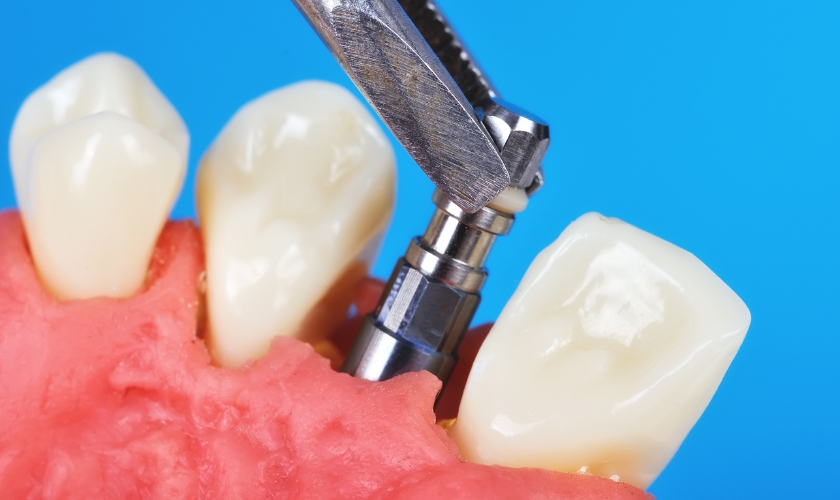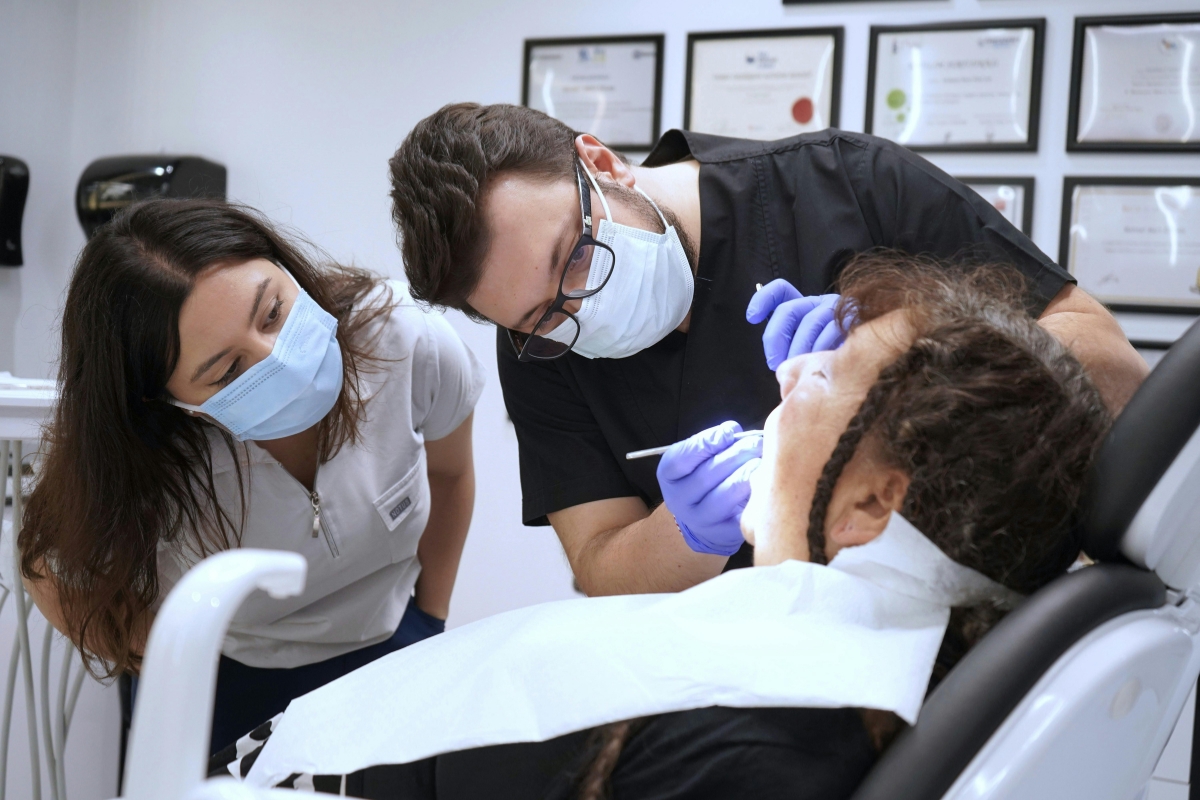

Dental implants are a popular and effective solution for replacing missing teeth, offering a long-lasting alternative to dentures or bridges. However, there are instances when dental implants may need to be removed, whether due to infection, implant failure, or complications during the healing process.
Having a basic understanding of what occurs after the extraction of a dental implant is essential to help you manage recovery and plan your next steps.
Why Are Dental Implants Removed?
Dental implants are designed to be a permanent solution, but in some cases, complications arise that necessitate removal. Common reasons for extraction include:
- Infection: Peri-implantitis, an infection that affects the tissues around the implant, can lead to bone loss and implant failure.
- Implant Failure: If the implant fails to integrate with the bone, also known as osseointegration, it may become loose or unstable.
- Damage to Surrounding Structures: In rare cases, implants can cause damage to nearby nerves or blood vessels, requiring removal.
- Excessive Bone Loss: Implants rely on sufficient bone density for support. If significant bone loss occurs, the implant may no longer be viable.
What Happens Immediately After Implant Extraction?
The process of extracting a dental implant is often less invasive than placing it, but it still requires careful attention to healing and recovery.
Here’s what typically occurs following the extraction of your dental implants:
Immediate Post-Extraction Care
- After the implant is removed, the area will be cleaned, and the oral surgeon may apply a bone graft to preserve the bone structure, especially if you plan to replace the implant in the future.
- You will be given post-operative instructions, including how to care for the extraction site, what foods to avoid, and recommendations for pain management.
Bleeding and Swelling
- Bleeding is normal following dental implant extraction. Your oral surgeon may place gauze over the extraction site and ask you to apply gentle pressure to control bleeding. Swelling in the first 24 to 48 hours is also common and can be managed with cold compresses.
Pain and Discomfort
- After the procedure, it is normal to feel mild to moderate pain. You can relieve this discomfort with over-the-counter pain relievers or medications prescribed by your oral surgeon in San Jose. Most patients notice a considerable reduction in pain within the first few days.
Stitches and Healing
- Depending on the extent of the procedure, your surgeon may use stitches to close the wound. These stitches are often dissolvable and will naturally disappear within a week or two. Healing time varies depending on the individual and the complexity of the extraction, but most people recover within a few weeks.
Long-Term Effects After Implant Extraction
Once the initial healing phase is complete, you may wonder about the long-term effects of having your implant removed. Here are a few considerations:
- Bone Loss: One of the primary concerns after dental implant extraction is the potential for bone loss. The absence of the implant can lead to bone resorption in the area where the tooth and implant once were. If you are considering replacing the implant or opting for another type of restoration, your oral surgeon may recommend a bone graft to maintain the bone structure.
- Planning for a Replacement: Once you have healed enough, you can explore your choices for getting a new dental implant. If the original implant was taken out because of infection or bone loss, you might need additional treatments like bone grafting or resolving any other issues before getting a replacement implant. Your reliable oral surgeon in San Jose will help you find the best solutions to restore your smile.
- Alternative Treatments: If replacing the dental implant is not ideal, other options, such as bridges or dentures, may be explored. These treatments can restore functionality and appearance without the need for additional surgeries.
Follow-Up Care and Preventing Future Complications
After the extraction, it’s essential to follow all post-operative instructions carefully to promote proper healing and prevent complications. Regular follow-up appointments with your oral surgeon will help monitor the healing process and determine the next steps for treatment.
To reduce the risk of future dental implant complications:
- Maintain Proper Oral Hygiene: Regular brushing, flossing, and dental checkups are crucial to preventing infections like peri-implantitis.
- Quit Smoking: Smoking can increase the risk of implant failure and complications.
- Address Health Conditions: If you have conditions such as diabetes, work with your healthcare provider to manage them, as they can affect healing.
Removing a dental implant is a carefully managed process that is essential for a successful recovery. Collaborating with a reliable oral surgeon in San Jose can guide you through the healing phase and help you find the best methods to restore your smile. By adhering to your surgeon’s recommendations, you can achieve optimal results after the implant is taken out and continue your journey toward better dental health with confidence.


